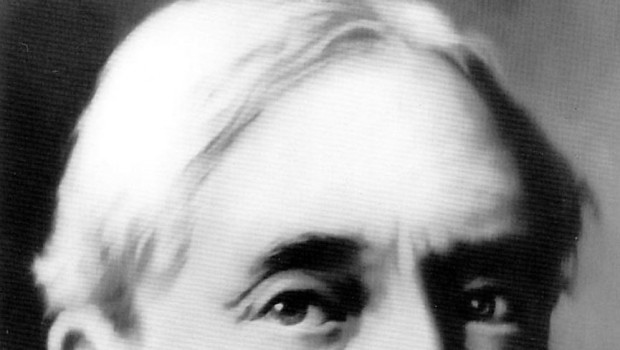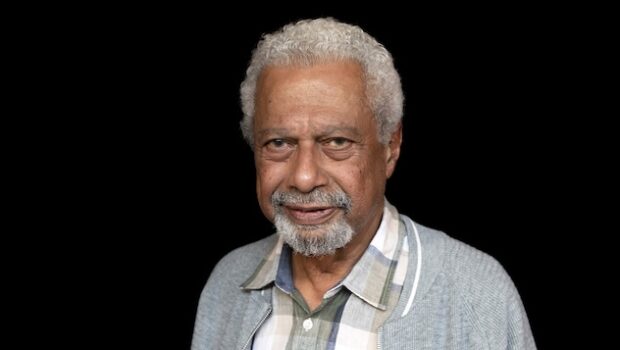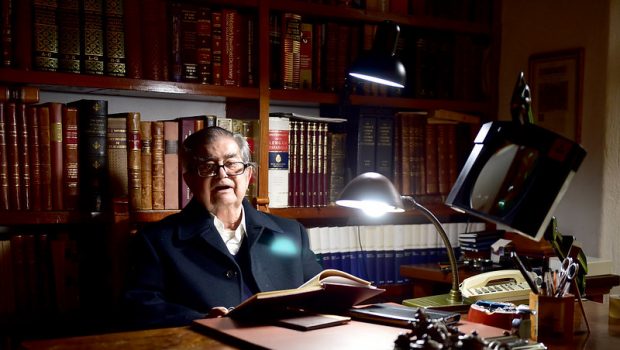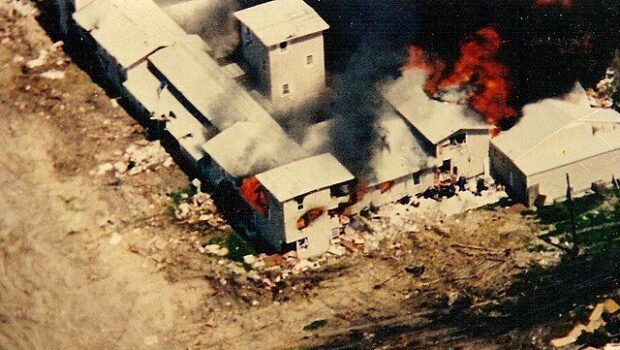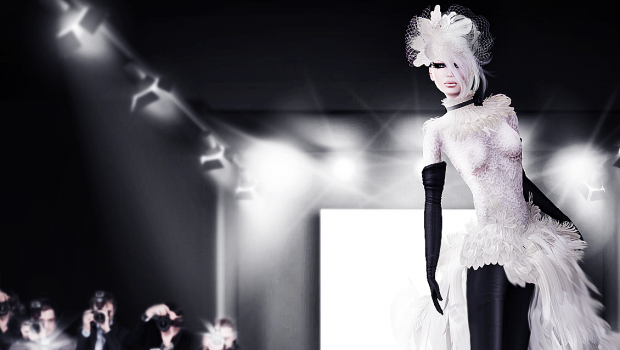Intellectuals and the Politics of Recognition
Los intelectuales y la política del reconocimiento
Yvon Grenier
The “public intellectual” is a 19th-20th century character who managed not to completely fade away in our postmodern time. This is a person who gained authority from peers, usually in the field of literature, and used it to become a publicly recognized authority on a host of worldly public issues. The intellectual is an informed amateur, someone who prevents incompetence from inhibiting participation in public debates.
Octavio Paz once said that in Latin America almost all writers are intellectuals. Is this assessment still valid? Probably not. Newly democratized societies are busy exploring the ins and outs of the new political process and show no appetite for great moral debates. The ascent of the blogosphere has also eroded the prestige and usefulness of a cultural aristocracy. Literary intellectuals are now in competition with a host of opinion-makers, not without some comparative advantages (they usually write with more style and breath) but with no exclusive mandate to act as the “conscience of the people.” In this day and age, the masses can speak for themselves: they won’t accept to be ventriloquized by a self-appointed “vanguard.”
Historically, intellectuals have been known and remembered for their views, what they stand against and what they stand for (in that order). Now that utopias are few and far between, they don’t feel the need to champion a “model” or a set of policies. Arguably, the triumph of liberal democracy and the absence of a truly attractive alternative to it are both hurting intellectuals. They face stiffer competition in the chatting class and have much less to offer than they used to. Today’s academic conferences on intellectuals reveal the solipsistic angoisse of the social sciences and humanities, first and foremost. Consider for instance a recent conference on intellectuals held at the Washington University in St Louis in 2008, which explored how “Indigenous, Afro-Latin and other social movements are taking a vanguard role in intellectual and cultural politics across much of the region, with epistemologies that refigure plurality and decolonize dichotomies of right/left and modern/traditional.” Mexican writer Jorge Volpi is right: Latin America is a fiction periodically reinvented during literary and academic conferences.
Authenticity
Our time is one that celebrates authenticity. The most authentic form of representation is the microcosm (to each group its quota of power and resources), not the trustee or the delegate. Karl Mannheim’s famous theorem on the prominence of the “detached intellectual” is out-of-date: nowadays, being detached from one’s roots is to be a fake. Opinions are like tattoos (very trendy): they are worn under the skin. New politics is identity politics. Even environmentalism reveals a craving for roots and authenticity.
The writer of today may also be an activist but as a citizen with a privileged access to public space, not as a “nation-builder.” For instance, the work of the most famous Latin American writers of the turn of the century, the Chilean Roberto Bolaño, can easily be interpreted as “political,” but he examines politics in a cerebral and personal way: he is not a “political writer” à la Fuentes, Garcia Marquez, Vargas Llosa or Benedetti. José Mujica of Uruguay and former president Lula of Brazil recently called for the formation of a “group of intellectuals” tasked (by Mujica and Lula) to “flesh out” a new “doctrine” promoting the integration of Latin America.
What writer of the newer generations could possibly accept such assignment? Wouldn’t a twenty-first century Latin American writer be more proficient to write about the disintegration of the continent?
Recognition
Definitions of the intellectual are often self-definitions. They tend to be flattering, highlighting his or her propensity to speak the truth to power. One remembers texts published in the 1960s and 1970s by writers-pensadores of the continent where intellectuals are hailed as the voice of the voiceless. The emphasis on the mission of the intellectual prompt analyst to neglect a less altruistic disposition: the quest for recognition.
Once a writer or artist has been recognized by his or her peers (a considerable achievement), recognition as a public intellectual must be gained from a broader constituency. Conventional wisdom on the mindset of intellectuals would suggest that the more a society is closed and liberticidal, the more the intellectual would find it difficult to “fit in.” The reality is more interesting and complex than that. In open and free societies, intellectuals can espouse the organizing principles of these societies (or not) but will need to be critical of some of its functioning attributes. The importance of television makes it even more imperative to “stir the pot” if one wishes to stand out. Conversely, in a completely closed and repressive society, genuine artists and intellectuals have no space and usually try to leave the country. In between those to models, one has the mostly closed societies (say, Cuba since 1959) or the mostly open ones (Mexico under the PRI). The pattern here is for intellectuals to be simultaneously wooed and despised by the rulers. It takes two to tango, and for writers and artists the partner is the great benefactor and merciless retaliator: the state. Here the intellectuals’ incongruous quest for critical space and for recognition stands out more histrionically than anywhere else.
This is particularly striking in a mostly closed and officially “revolutionary” society like Cuba. Recalling Paul Valéry’s bon mot that “two mortal dangers threaten humanity: order and disorder,” one can argue that order (the state, the regime, the statu quo) and disorder (revolution, insurgency; and concomitantly, criticism, imagination, autonomy) represent a danger for each other. They require very different sets of skills and dispositions. Under the oxymoron “revolutionary government” one typically finds in official rhetoric numerous calls for unwavering obedience to the leader and the party, and simultaneously a celebration of debate and even criticism. A cursory review of public declarations by cultural officials in Cuba shows that they, the censors, routinely chasten self-censorship, challenging intellectuals and artists to be more audacious and critical. In sum, the name of the game is to be “critical” within the revolution, at the right time and the right place, which pretty much means, as a Cuban intellectual (Lisandro Otero) once proclaimed during a congress of the Union of Cuban writers and Artists (in 1988), that “el intelectual en una sociedad auténticamente revolucionaria tiene ante sí el deber de consentir.”
Over the past five decades, in Cuba, many writers and intellectuals have been persecuted and went in exile. Others sought refuge in the “insilio” (i.e the “internal exile”), at least for a while. None of the conventional account on the mission of the Latin American intellectual prepare the observer to understand their contentment when finally, after years of seeing their work banned and their name sullied, Fidel consented to grant some of them recognition (often in the form of a belated national award, as in the case of writer Antón Arrufat). The cultural institutions of the country are packed with formerly persecuted intellectuals who are now grateful enough not to ask explanations, let alone an apology, from their tormentors. Between mild criticism (for épater le commissaire) and recognition, the latter tend to prevail.
What does a case like this tell us about intellectuals in general? That both freedom and recognition are essential for an intellectual, and that the first is not necessarily the most important.
Conclusion
Artistic inspiration and creativity is not as affected by circumstances as we may like to think. The uncomfortable truth is that democratic societies do not produce better artists and writers than non-democratic ones. No writing or work of art can be regarded as bereft of social and historical resonance, yet no great writing or work of art can ever be reduced to what Milan Kundera called the “small context”, i.e. history, social conditions, politics and pubic opinion (the “big context” is the artistic and literary traditions). The fortune of a public intellectual, on the other hand, is completely conditioned by his or her environment. In this phase of emergence of democracy in the region (only Costa Rica has a fully “consolidated” democracy), the retreat of many artists and writers from direct political combat should not be interpreted too rapidly as a setback for either politics or for literature. Today’s writers are doing politics in a way that serves better the interest of their art, shedding light on what is often hidden by social discourses and not inadvertently, contributing to our understanding of politics. Great writing does much of the saying, even when the quest for recognition trumps critical dispositions. All in all, the disenchanted public intellectual of our time still has much to offer.
Traducción al español por Eugenia Noriega
El “intelectual público” es un personaje de los siglos XIX – XX que se las arregló para no desvanecerse del todo en nuestra época posmoderna. Es una persona que obtuvo autoridad de sus pares, por lo general en el campo de la literatura, y la utilizó para convertirse en una autoridad públicamente reconocida en toda una serie de asuntos públicos mundanos. El intelectual es un amateur informado, alguien que evita que la incompetencia inhiba la participación en el debate público.
Octavio Paz alguna vez dijo que en Latinoamérica casi todos los escritores son intelectuales. ¿Todavía es válido este cálculo? Quizá no. Las sociedades recién democratizadas están ocupadas explorando los pormenores del nuevo proceso político y no dan muestras de desear grandes debates morales. El ascenso de la blogósfera también ha socavado el prestigio y los beneficios de una aristocracia cultura. Los intelectuales literarios ahora compiten con una multitud de líderes de opinión, no sin algunas ventajas comparativas (por lo general escriben con más estilo y envergadura) pero sin un mandato exclusivo de actuar como la “consciencia del pueblo”. Hoy en día las masas pueden hablar por sí mismas: no van a aceptar la ventriloquía de una “vanguardia” autoproclamada.
A través de la historia los intelectuales han sido conocidos y recordados por sus puntos de vista, por lo que impugnan y lo que defienden (en ese orden). Ahora que las utopías son pocas y espaciadas, ya no sienten la necesidad de abanderar un “modelo” o una serie de políticas. Es posible que el triunfo de la democracia liberal y la ausencia de una alternativa realmente atractiva a ella estén perjudicando a los intelectuales. Se enfrentan a una competencia más rígida en la clase chateadora y tienen mucho menos que ofrecer que antes. Las conferencias académicas de hoy sobre intelectuales revelan sobre todo la angustia solipsista de las ciencias sociales y las humanidades, en primer lugar. Pensemos por ejemplo en una conferencia reciente sobre intelectuales en la Universidad Washington en St. Louis en el 2008, que exploró cómo “los movimientos sociales indígenas afro-latinos, entre otros, están tomando un rol vanguardista en las políticas intelectuales y culturales a lo largo de la región, con epistemologías que refiguran la pluralidad y descolonizan las dicotomías de izquierda/derecha y moderno/tradicional”. El escritor mexicano Jorge Volpi tiene razón: Latinoamérica es una ficción periódicamente reinventada en conferencias literarias y académicas.
Autenticidad
Nuestro tiempo celebra la autenticidad. La forma de representación más auténtica es el microcosmos (a cada grupo su cuota de poder y recursos), no el depositario o el delegado. El famoso teorema de Karl Mannheim sobre la prominencia del “intelectual flotante” es obsoleto: hoy por hoy estar desvinculado de las raíces equivale a ser un farsante. Las opiniones son como los tatuajes (muy en boga): se deben llevar bajo la piel. La nueva política es la política de identidades. Incluso el ambientalismo revela un enorme deseo de raíces y autenticidad.
El escritor de hoy podrá ser todavía un activista, pero como un ciudadano con acceso privilegiado al espacio público, no como un “constructor de naciones”. Por ejemplo, es fácil interpretar como “política” la obra de uno de los escritores latinoamericanos más famosos de principios de siglo, el chileno Roberto Bolaño; pero examina la política de una forma cerebral y personal: no es un “escritor político” al estilo de Fuentes, García Márquez, Vargas Llosa o Benedetti. Hace poco José Mujica de Uruguay y el ex presidente Lula de Brasil llamaron a la creación de un “grupo de intelectuales” con la misión (encomendada por Mujica y Lula) de “dar cuerpo” a una nueva “doctrina” que promueva la integración de Latinoamérica.
¿Qué escritor de las generaciones más nuevas podría aceptar una tarea así? ¿No estaría más versado un escritor latinoamericano del siglo XXI para escribir sobre la desintegración del continente?
Reconocimiento
Las definiciones del intelectual suelen ser auto-definiciones. Tienden a ser halagadoras, a destacar su propensión a decirle la verdad al poder. Recordemos textos publicados en los años sesenta y setenta por escritores-pensadores del continente donde los intelectuales son aclamados como la voz de los que no tienen voz. El énfasis en la misión del intelectual lleva al analista a descuidar una disposición menos altruista: la búsqueda de reconocimiento.
Una vez que un escritor o artista ha sido reconocido por sus pares (una proeza considerable), se debe ganar el reconocimiento como intelectual público ante una circunscripción más extensa. La sabiduría convencional sobre la mentalidad de los intelectuales sugeriría que mientras más cerrada y liberticida es una sociedad, más difícil sería para el intelectual caber en ella. La realidad es más interesante y compleja. En sociedades abiertas y libres, los intelectuales pueden adherirse a los principios organizativos (o no), pero deberán ser críticos con respecto de algunos de sus atributos funcionales. La importancia de la televisión hace aún más imperativo “echarle leña al fuego” si uno se quiere destacar. En cambio, en una sociedad absolutamente cerrada y represiva, los artistas e intelectuales genuinos no tienen cabida y por lo general tratan de abandonar el país. En medio de estos dos modelos, tenemos las sociedades mayormente cerradas (digamos, Cuba desde 1959) o las mayormente abiertas (México con el PRI). El patrón en estos casos es que los gobernantes cortejen y desprecien a los intelectuales al mismo tiempo. Para pelear se necesitan dos, y para los escritores y artistas el socio es el gran benefactor y el vengador despiadado: el estado. Aquí la búsqueda incongruente de espacio crítico y reconocimiento de los intelectuales sobresale con más histrionismo que cualquier otro lugar.
Es particularmente notable en una sociedad mayormente cerrada y oficialmente “revolucionaria” como Cuba. Recordando la frase de Paul Valéry, “dos peligros mortales amenazan a la humanidad: el orden y el desorden”, uno podría argumentar que el orden (el estado, el régimen, el estatus quo) y el desorden (la revolución, la insurrección y, a la vez, la crítica, la imaginación, la autonomía) representan un peligro para sí mismos. Requieren un conjunto muy distinto de habilidades y disposiciones. Bajo el oxímoron “gobierno revolucionario” uno suele encontrar en la retórica oficial numerosas llamadas a la obediencia inquebrantable al líder y al partido y, al mismo tiempo, una celebración del debate e incluso de la crítica. Un repaso superficial de las declaraciones públicas hechas por funcionarios culturales en Cuba muestra que ellos, los censores, castigan la autocensura por rutina, desafiando a los intelectuales y a los artistas a ser más audaces y críticos. En resumen, se trata de ser “crítico” desde dentro de la revolución, en el momento correcto y el lugar adecuado, que en pocas palabras significa, como proclamó alguna vez un intelectual cubano (Lisandro Otero) durante un congreso de la Unión de Escritores y Artistas de Cuba (en 1988), que “el intelectual en una sociedad auténticamente revolucionaria tiene ante sí el deber de consentir”.
A lo largo de las últimas cinco décadas, en Cuba, muchos escritores e intelectuales han sido perseguidos y se fueron al exilio. Otros buscaron refugio en el “insilio” (es decir, el “exilio interno”), al menos por un tiempo. Ninguna de las descripciones de la misión del intelectual latinoamericano prepara al observador para entender su conformidad cuando, al final, después de años de ver su trabajo vedado y su nombre mancillado, Fidel aceptó darles algo de reconocimiento (con frecuencia en la forma de un premio nacional atrasado, como en el caso del escritor Antón Arrufat). Las instituciones culturales del país están repletas de intelectuales otrora perseguidos que ahora están tan agradecidos como para no pedir explicaciones, no digamos disculpas, a sus fustigadores. Entre la crítica moderada (para épater le commissaire) y el reconocimiento, este último tiende a prevalecer.
¿Qué nos dice un caso así de los intelectuales en general? Que tanto la libertad como el reconocimiento son esenciales para un intelectual, y que la primera no es necesariamente la más importante.
Conclusión
La inspiración artística y la creatividad no se ven tan afectadas por las circunstancias como nos gustaría pensar. La verdad incómoda es que las sociedades democráticas no producen mejores artistas y escritores que las no democráticas. Ninguna obra de arte o escritura se puede considerar privada de resonancia social e histórica, pero ninguna gran obra de arte o escritura se puede reducir a lo que Milan Kundera llamó el “contexto pequeño”, es decir, condiciones históricas y sociales, política y opinión pública (siendo las tradiciones artísticas y literarias el “gran contexto”). La suerte de un intelectual público, por otro lado, está subordinada por completo a su entorno. En esta fase de emergencia de la democracia en la región (sólo Costa Rica tiene una democracia plenamente “consolidada”), el retiro de varios artistas y escritores del combate político directo no se debe interpretar con demasiada soltura como un revés para la política ni para la literatura. Los escritores de hoy están haciendo política de una manera más provechosa para su arte, iluminando lo que con frecuencia se esconde en los discursos sociales y, no sin saberlo, contribuyendo a nuestro entendimiento de la política. La buena escritura dice muchas cosas, incluso cuando la búsqueda de reconocimiento supere las disposiciones críticas. En resumidas cuentas, el intelectual público desencantado de nuestros tiempos todavía tiene mucho que ofrecer.


